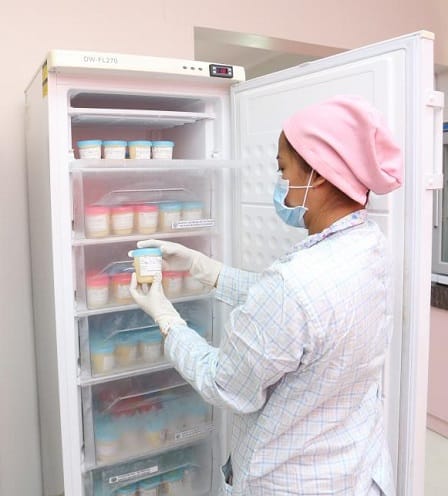Last Updated on October 30, 2019 10:46 am by INDIAN AWAAZ

Staff Reporter / New Delhi
Government of India has decided to start off human milk bank to increase the access of breast milk to the infants. India has taken inspiration from Brazil’s success in the field of human milk bank decided to adopt a similar model in creating a wide network of human milk banks.
The Government has set a target of ensuring 70 per cent infants to have access to breast milk by the year 2025. Target will subsequently be increased to 100 per cent.

Minister of State for Health and Family Welfare Ashwini Kumar Choubey after returning from BRICS Health Ministers’ Conference in Brazil, informed media that member countries have decided to take coordinated efforts to reduce infant mortality rate, increase the access of breast milk to the infants and ensuring affordable medicine to all.
Issues like primary health coverage, reduction of infant mortality, vaccination, availability of affordable medicines, Tuberculosis and universal health coverage dominated the deliberations in the Conference.
The minister said the member countries appreciated India’s Ayushman Bharat scheme for universal health coverage.
Breast milk is exclusive source of nutrition

It is universally accepted that breast milk is the optimum exclusive source of nutrition for the first six months of life, and may remain part of the healthy infant diet for the first two years of life and beyond. Despite advances in infant formulas, human breast milk provides a bioactive matrix of benefits that cannot be replicated by any other source of nutrition.
When the mother’s own milk is unavailable for the sick, hospitalized newborn, pasteurized human donor breast milk should be made available as an alternative feeding choice followed by commercial formula. There is a limited supply of donor breast milk in India and it should be prioritized to sick, hospitalized neonates who are the most vulnerable and most likely to benefit from exclusive human milk feeding.
DOCTORS’ RECOMMENDATIONS
The preferred nutrition for the newborn is his/her own mother’s milk. When this is not available or is limited, pasteurized human donor breast milk is a recommended alternative for hospitalized neonates.
The use of pasteurized human donor breast milk should be prioritized to compromised preterm infants and selected ill term newborns.
Pasteurized human donor breast milk should only be prescribed following written informed consent from a parent or guardian.
Education of parents about the benefits of human breast milk or pasteurized human donor breast milk is essential to parental choice and informed decision making in prescribing an optimal feeding plan for hospitalized neonates.
Milk banking should be adopted as a cost-effective nutritional source for hospitalized neonates because it reduces disease incidence and severity, thus reducing resource use during the hospitalization.
Recognized functions of the human milk bank should include the promotion of breastfeeding and ongoing human milk research.
